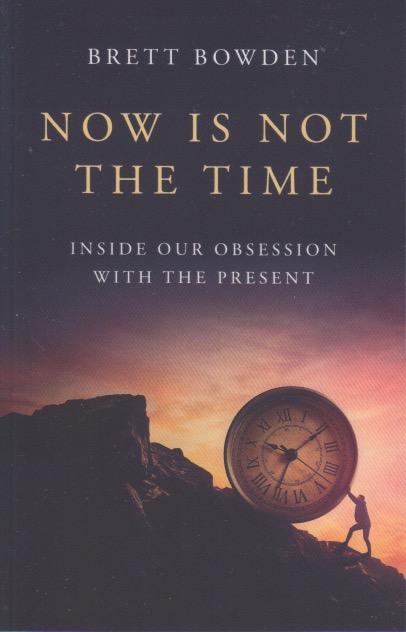
Speaking of time… Time is one of those things that flummoxes me. A time change, crossing time zones, trying to figure things out on a base-6 system (metric time anyone?). Confusing. One thing about time is that we live in it, and so reflecting on it seems a reasonable thing to do. Brett Bowden does just that in Now Is Not the Time: Inside Our Obsession with the Present. As an historian, Bowden is experienced at looking back and this brief book is a reflection on why we’re so fixated on now being the most important time ever. Given recent events, his seems to be a comforting message when looking at the long term of human history, and even longer term of our humble planet’s history. The present is a blip and the future, at least as far as we know, hasn’t been decided yet.
One of the topics Bowden addresses here is the human propensity to claim and name. We like to name things and when we do, it implies ownership. Who but an owner gets to decide on a name? This leads him to reflect on Eurocentrism, as in the naming of objects, such as Mount Everest, that are very far away and in somebody else’s territory. We name craters on the moon (which we can’t really just pop over to) and even stars and galaxies. We’re terribly acquisitive rascals, aren’t we? We do the same with time—dividing it into eras. Bowden’s discussion of the Anthropocene debate is quite interesting. It seems we need a name for the time when people really began changing the planet on a global scale, but geological time ought to hush us up, if we stop and think about it.
As Bowden notes, psychologists and life coaches often encourage us to be in the present. I think what they mean is that we shouldn’t worry unduly about the future. That’s good advice. Something Brett reminded me of is that some cultures, such as those of the Bible writers, view people as moving into the future backward. It’s like riding on a train facing away from the direction of motion. We can see the past and we can interpret it. The future, however, we can’t perceive quite so clearly. As someone who has studied the history of religions, I tend to agree that looking back is often a source of comfort. It’s also a source of horror—many bad things have happened, many of them intentionally orchestrated by our species. But it does serve to ground us in the now. Even if it’s no more important than what went before or than whatever it may be that will come.
